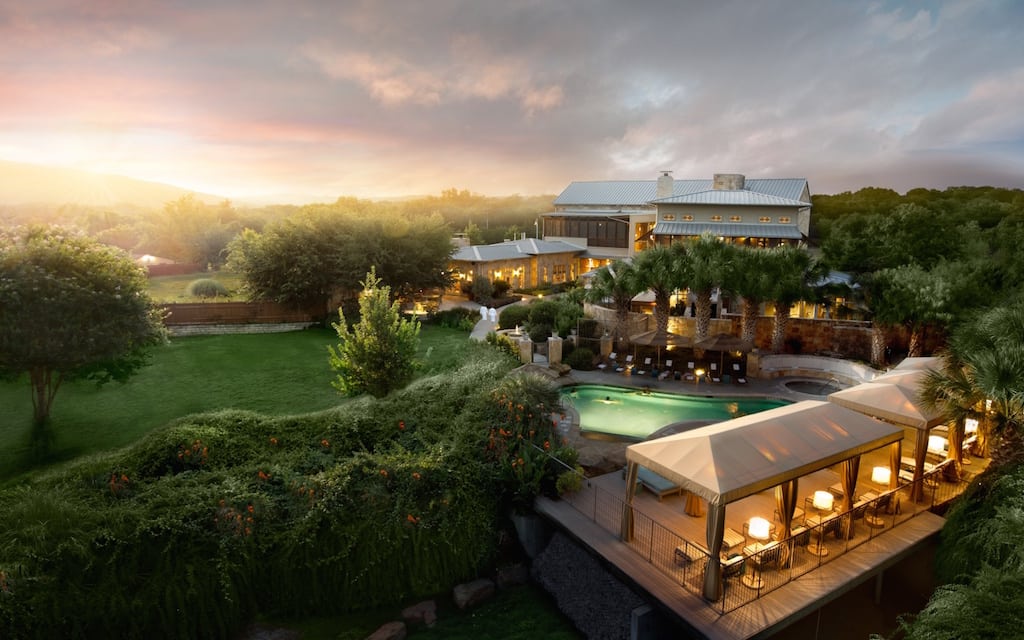Skift Take
An independent lifestyle hotel collection specifically geared for corporate meetings seems like an inspired idea. The challenges include building brand awareness and convincing corporate procurement departments to work with independent hotels.
The lifestyle hospitality sector has exploded in the last two years with the rise of new corporate, independent and “soft” brands promising a better guest connection to the local destination.
Joining that trend in October 2014, Kindred Resorts & Hotels is a new marketing consortia consisting of 58 independent lifestyle hotels, created along the same lines as Preferred Hotels or Destination Hotels, but with a focus squarely aimed at the corporate meetings market.
Members range from smaller regional properties like the 60-room Hacienda del Sol Guest Ranch Resort in Tucson to the iconic 540-room Breakers in Palm Beach.
The network itself is not new. It actually dates back three decades to when the properties first banded together to buy group insurance in bulk to lower their fees.
“Many of them are family owned and there’s a lot of synergies among their businesses, so a few years ago they got together and asked, ‘How else can we leverage the group model for the benefit of the whole?'” says Bree Brostko, managing director of Kindred Resorts & Hotels. “The one big pain point that continued to come up was meetings business.”
Almost all of the properties have multiple meeting rooms and cater to corporate groups. However, since 2008, their corporate clients have been decreasing the number and size of their meetings, so the hotels’ cost of acquisition keeps rising because it’s more challenging than ever to get in front of planners.
Another factor behind the Kindred launch was the rise in demand for upscale lifestyle properties around the world. Millennial meeting attendees especially are decrying in droves the “big beige boxes” inherent among many of the older hotels within the legacy brand portfolios. So the timing was propitious for an emerging flag like Kindred to enter the market with a collective guest delivery emphasizing unique character and sense of place.
“So we don’t need to create a soft brand, or whatever you want to call it, because that’s what we are inherently,” says Brostko. “Our story is that we’re engaged with the local community. Our story is that our offsite events take advantage of the local culture. We’re already perfectly positioned.”
So the Kindred lifestyle meetings brand was born, with a selective focus on providing a dedicated portal for planners into the independent hospitality marketplace. To date, Kindred has been building on the long-established financial and insurance relationships with the parent network to attract meetings, retreats and conferences within those sectors.
Building the Meetings Business
To build on that, the Kindred brand team has been attending meetings industry trade shows like IMEX America in Las Vegas in October, where Kindred brought five of the member properties to meet with high value planners. One of those properties was Lake Austin Spa Resort in Texas Hill Country, which specializes in corporate wellness retreats and incentive programs.
“Some of us brought up the idea of attending IMEX last year, and within a few months, Kindred ran with it,” says Nanci Reilly, director of sales at Lake Austin Spa Resort. “That was huge for us because it’s very expensive to have an exhibitors booth at IMEX, but at the same time it’s always hard to find qualified planners. So because we attended IMEX and hosted a cocktail event, we were able to meet face to face directly with buyers.”
Reilly told us that she sees Kindred as an “emerging Preferred Hotels,” but most planners still aren’t really aware of the brand because it’s new. Except, she added, planners tend to prefer to engage specifically with planner-focused organizations, especially sales teams who understand their specific needs. So Kindred should be able to leverage that competitive advantage over time.
Brostko says another challenge revolves around procurement departments at most large companies. Many of them already have preferred agreements with specific hospitality brands. So meeting planners are often forced to source properties with particular hotels, regardless if they feel an independent property could deliver higher business outcomes.
“Procurement was never involved as much in sourcing meetings when I started in the industry, but now there’s this whole process with contractual agreements,” she explained. “Sourcing to an independent property can sometimes be a barrier of entry for us, because on the meeting planner side, it has to go through so many channels now that it almost has to come from top down for something to be approved.”
Looking ahead, Kindred’s strategy involves attending more in-person industry events and ramping up editorial and video content on the website. Social media is the number one driver to the site, specifically LinkedIn.
There’s also interest in developing thought leadership content and potentially webinars around the ROI of booking lifestyle hotels for group business events.
“There’s such a demand for corporate retreats and meetings offering something more experiential and removed from the ordinary, because people want to connect better in a more natural environment,” says Brostko. “We want to allow those bonds to happen.”
Have a confidential tip for Skift? Get in touch
Tags: meetings, meetingsiq
Photo credit: Lake Austin Spa Resort caters to corporate retreats and wellness incentive programs. Lake Austin Spa Resort
